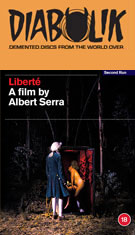
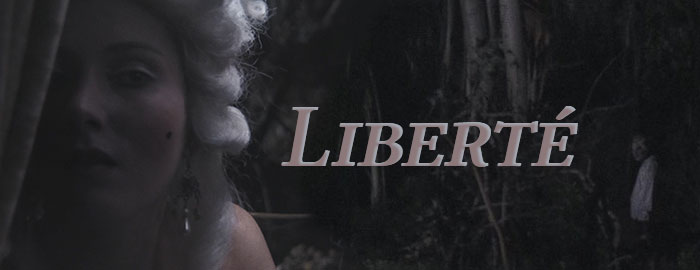
Color, 2019, 137 mins. 42 secs.
Directed by Albert Serra
Starring Helmut Berger, Marc Susini, Iliana Zabeth, Laura Poulvet
Second Run (Blu-ray) (UK R0 HD) / WS (1.85:1) (16:9)
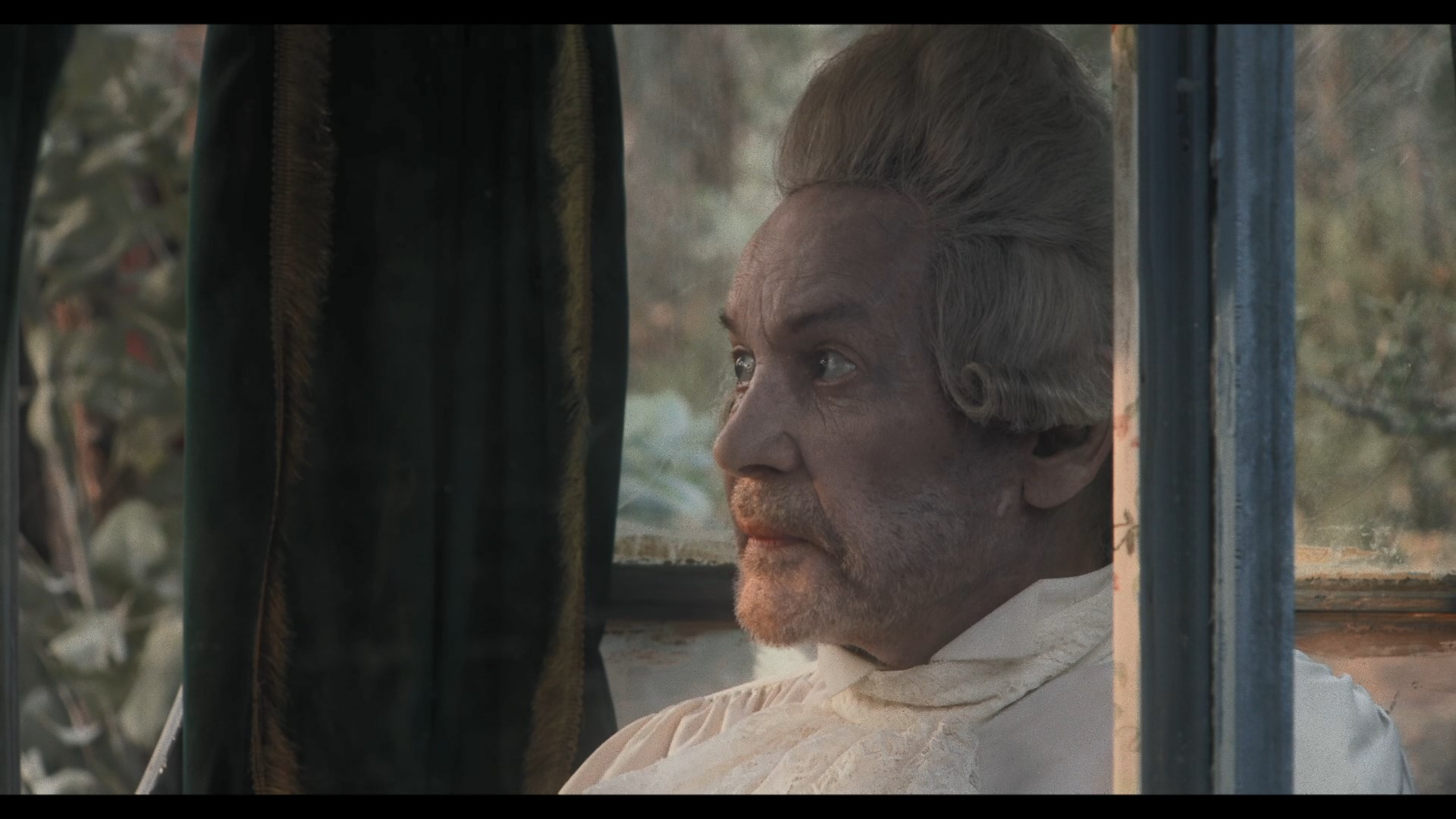 A Midsummer Night's Dream
A Midsummer Night's Dream  rewritten by the Marquis De Sade and that's a pretty good starting point to describe Liberté, a stylish and perverse look at the French aristocracy over the course of one eventful and very dark night spent in the woods. If any film ever fell under the "not for everyone" label this would be it, but in as an example of the frequent and peculiar melding of the art house and grindhouse, it proves there are still plenty of buttons out there left to be pushed.
rewritten by the Marquis De Sade and that's a pretty good starting point to describe Liberté, a stylish and perverse look at the French aristocracy over the course of one eventful and very dark night spent in the woods. If any film ever fell under the "not for everyone" label this would be it, but in as an example of the frequent and peculiar melding of the art house and grindhouse, it proves there are still plenty of buttons out there left to be pushed. 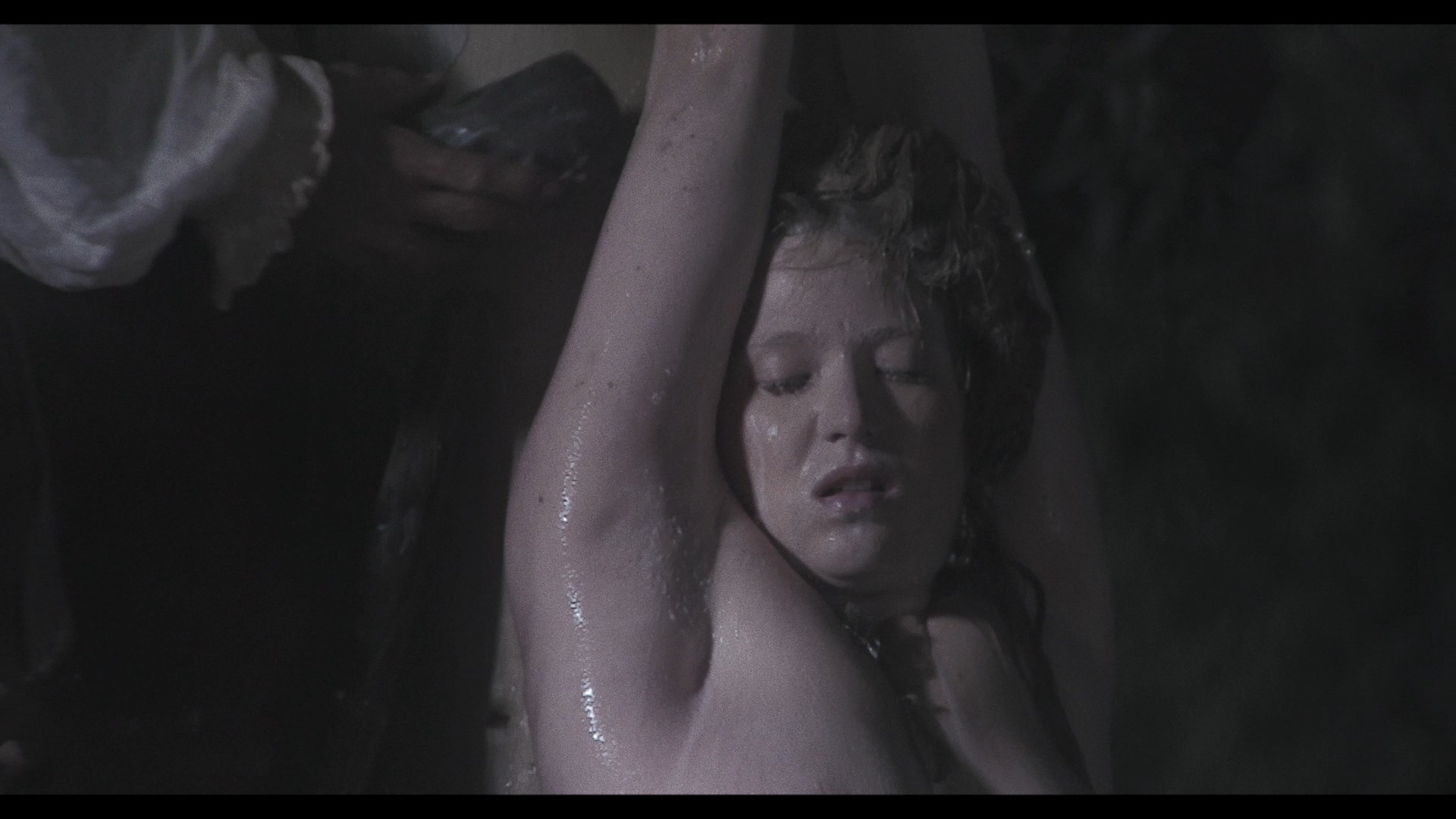 very aesthetically captured and mostly in dim chiaroscuro lighting contrasts significantly with the more outrageous performances on display, including a startling unsimulated golden shower orgy
very aesthetically captured and mostly in dim chiaroscuro lighting contrasts significantly with the more outrageous performances on display, including a startling unsimulated golden shower orgy 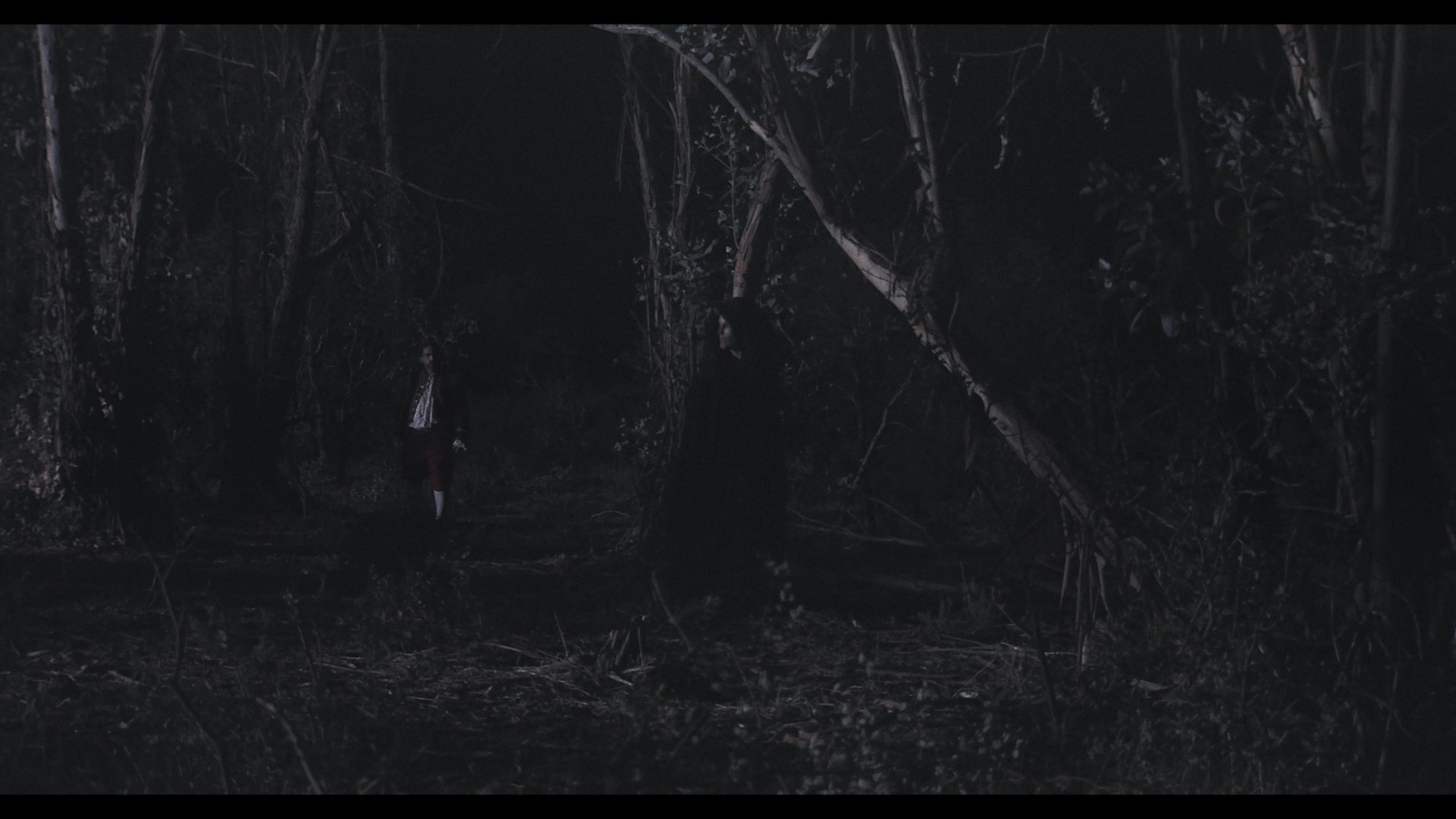 that will likely keep this out of circulation in more than a few territories. Calling this pornography seems like a stretch though given that nothing seems intended to be genuinely arousing and most of the sex is simulated and from a distance, but there's still more than enough explicit language and casual nudity to keep this one away from screening in mixed company. More than a few reviewers have noted similarities to earlier outrage films like Salo, though in this case it's more about sexual excess (including the prerequisites like light bondage and bare butt whipping) than violence apart from a grisly opening monologue and one bloody bit of limb mangling.
that will likely keep this out of circulation in more than a few territories. Calling this pornography seems like a stretch though given that nothing seems intended to be genuinely arousing and most of the sex is simulated and from a distance, but there's still more than enough explicit language and casual nudity to keep this one away from screening in mixed company. More than a few reviewers have noted similarities to earlier outrage films like Salo, though in this case it's more about sexual excess (including the prerequisites like light bondage and bare butt whipping) than violence apart from a grisly opening monologue and one bloody bit of limb mangling.  The French audio is presented in 16-bit DTS-HD MA 5.1 and 24-bit 2.0 PCM stereo with optional English subtitles; both sound very good for a sound mix that isn't exactly designed to tax your speakers,
The French audio is presented in 16-bit DTS-HD MA 5.1 and 24-bit 2.0 PCM stereo with optional English subtitles; both sound very good for a sound mix that isn't exactly designed to tax your speakers, 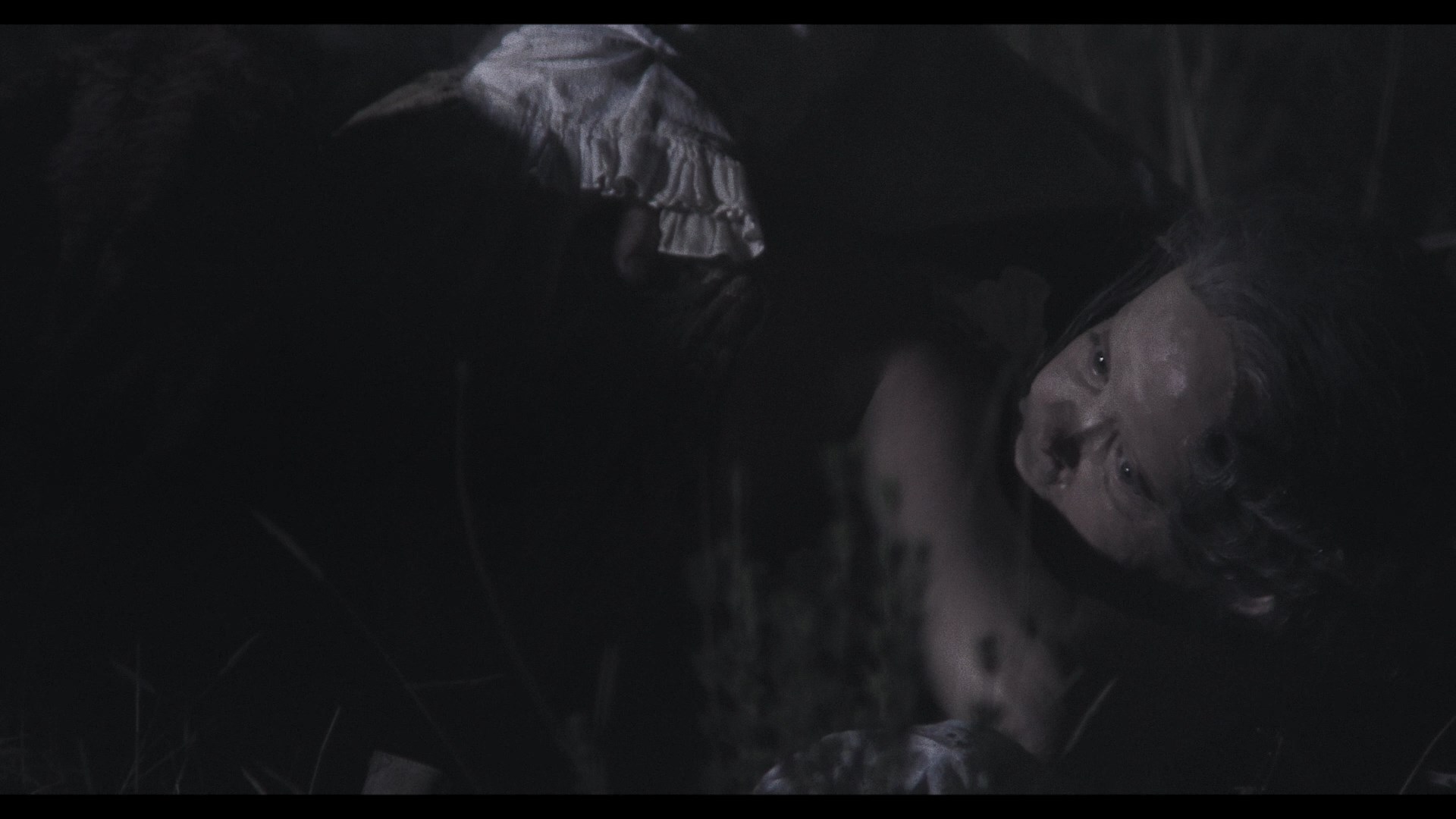 with the stereo one having a bit more dynamic punch to it in a few moments. Decked in sunglasses and a big white scarf, Serra provides a brief English-language video introduction (3m17s) and appears for a more substantial video interview (27m48s) that goes into his intentions behind the film, his thoughts on the reactions of critics, the casting of the film with largely unknown performers including members of the crew who were willing to disrobe, and the trickery necessary to capture sound and direct actors from such a far distance in many scenes. The French theatrical trailer is also included, and a 24-page insert booklet features an essay by Jason Wood, "The Monotony of Lust," and an additional text interview with Serra conducted by Manu Yáñez-Murillo, both well worth reading as they feature useful historical context, thoughts on the themes of sexuality as a relief for malaise, and the influence of other writers and artists including Catherine Millet.
with the stereo one having a bit more dynamic punch to it in a few moments. Decked in sunglasses and a big white scarf, Serra provides a brief English-language video introduction (3m17s) and appears for a more substantial video interview (27m48s) that goes into his intentions behind the film, his thoughts on the reactions of critics, the casting of the film with largely unknown performers including members of the crew who were willing to disrobe, and the trickery necessary to capture sound and direct actors from such a far distance in many scenes. The French theatrical trailer is also included, and a 24-page insert booklet features an essay by Jason Wood, "The Monotony of Lust," and an additional text interview with Serra conducted by Manu Yáñez-Murillo, both well worth reading as they feature useful historical context, thoughts on the themes of sexuality as a relief for malaise, and the influence of other writers and artists including Catherine Millet.![]()